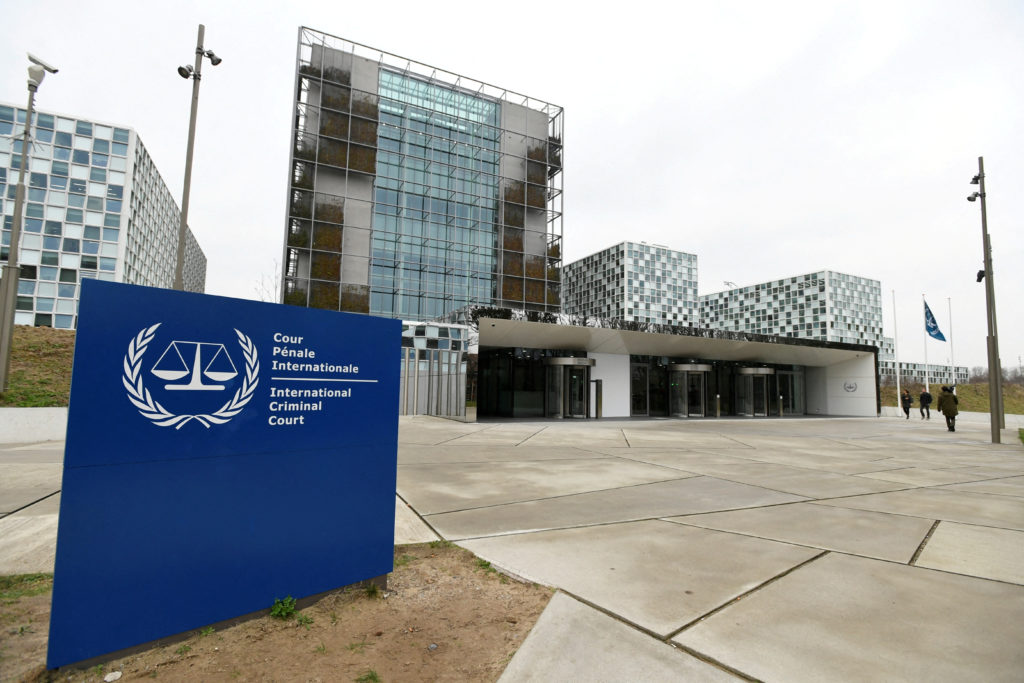Trump Sanctions ICC: A Move to Shield U.S. and Israeli Sovereignty
JERUSALEM – President Donald Trump has issued an executive order imposing sanctions on the International Criminal Court (ICC), a decision that is sparking heated discussions about international law and national sovereignty. Critics argue that this action is primarily aimed at preventing potential legal repercussions for U.S. military and government personnel.
Safeguarding Personnel from “Lawfare”
According to Richard Goldberg, a former official in the Trump administration who worked on the National Security Council, the sanctions are a necessary move to protect American officials from what he refers to as politically motivated legal pursuits. Speaking with Fox News Digital, he stated, “This is a critical first step in defending American soldiers and officials from lawfare waged by radical anti-Americans using what has essentially become an international kangaroo court.”
Goldberg further explained that while Israel currently finds itself at the center of ICC investigations, the court has also been scrutinizing U.S. actions in Afghanistan for alleged war crimes. “These officials have crossed a line—they are using legal mechanisms as weapons,” he noted. “If the ICC continues with this lawfare, we could act to shut it down entirely.”
ICC’s Strong Rebuttal
In response to Trump’s sanctions, the ICC issued a defiant statement reaffirming its commitment to justice. “The Court stands firmly by its personnel and pledges to continue providing justice and hope to millions of innocent victims of atrocities across the world,” the statement read. The ICC called for unity among its 125 member states and civil society to uphold justice and protect fundamental human rights.
Trump’s sanctions were particularly triggered by the ICC’s announcement in May 2024 regarding arrest warrants for Israeli Prime Minister Benjamin Netanyahu and former Defense Minister Yoav Gallant. This move prompted a sharp reaction from the U.S. administration, culminating in the sanctions.
Support from Global Allies
Netanyahu expressed gratitude towards Trump, describing the executive order as a critical defense against what he labeled an illegitimate and biased institution. “Thank you, President Trump, for your bold ICC executive order,” Netanyahu said. “This will protect both America and Israel from a corrupt, anti-American, and antisemitic institution.”
Hungarian Foreign Minister Peter Szijjarto also commended the sanctions, stating they are “absolutely understandable.” He criticized the ICC as a “biased political tool” and hinted at Hungary reassessing its relationship with the court.
International Responses: A Divided Stance
While Trump’s decision found support among certain nations, it was met with resistance by a coalition of nearly 80 countries that reaffirmed their commitment to the ICC. “We reaffirm our unwavering support for the independence, impartiality, and integrity of the ICC,” the group stated. Notable supporters of this sentiment include France, Germany, and Britain.
However, some traditional allies of the U.S., such as Australia, the Czech Republic, Hungary, and Italy, were absent from the endorsement, highlighting a fracture in international consensus on the ICC’s role and legitimacy.
Political Fallout in the U.S.
The timing of Trump’s sanctions also has a domestic political dimension. Goldberg pointed out that Trump’s executive order came after Senate Democrats, led by Minority Leader Chuck Schumer (D-NY), blocked a Republican-backed bill aimed at sanctioning the ICC in January. “The president wasn’t going to wait around for Schumer’s political games,” Goldberg remarked. “As soon as Senate Democrats obstructed the bill, it was clear that an executive order was coming.”
Goldberg urged Republicans to back Trump’s executive order with legislative action, suggesting that if Schumer now claims to support this action, Republicans should push to codify it and compel Schumer to take a public stance.
